Last Updated on April 19, 2022
The Powertrain Control Module (PCM) is a sophisticated piece of machinery. It receives data from a range of sensors. The Engine Control Module (ECM) and the Transmission Control Module (TCM) are both examples of systems that the PCM monitors.
Remarkably, the PCM also analyzes the data it collects. It uses that information to control the ignition system, the fuel injectors, and more. It will work out the best settings for optimal performance and adapt accordingly.
If your vehicle has a bad PCM, you can expect to have some serious issues. Below are some common symptoms to help diagnose a faulty powertrain control module as well as the average cost to replace and/or reprogram the PCM.
See Also: 5 Signs of a Bad Body Control Module
How the PCM Works
It doesn’t matter if you own a Ford or a Chevy, the PCM relay will be similar. It is the car’s brain, and it controls everything in the vehicle.
A bad car computer is a big deal. Problems with this system mean that it can’t send messages to other systems within the vehicle. It could mean throwing your timing and other vital systems out, too.
Bad Powertrain Control Module Symptoms
The best way to diagnose an issue with this system is to go to a qualified auto-electrician. They have specialized equipment that allows them to read the error codes that the PCM is emitting. In the meantime, here are six classic symptoms to diagnose a PCM problem.
#1 – Poor Performance

When you’re tired, you don’t operate at peak efficiency. If you’re fatigued or ill, you have a kind of brain fog that makes it harder to think. It’s easy to make the wrong decisions and make mistakes.
Your PCM might not be at risk of the flu, but when it’s “sick,” the mechanism is going to make errors. It could misinterpret the air/fuel mix, for example, and not send the engine the necessary amount of fuel.
If there’s too little fuel, the engine won’t function properly. It will start to jerk and possibly even stall. If this continues over an extended period, the engine could become permanently damaged since it is not getting the lubrication it needs.
If there’s too much fuel, though, the engine won’t be damaged straight away. What you will notice is an increase in emissions and a decrease in fuel economy. If this is not corrected quickly, it will emit too much carbon and adversely affect the engine’s performance as well.
#2 – Shifting Becomes Problematic
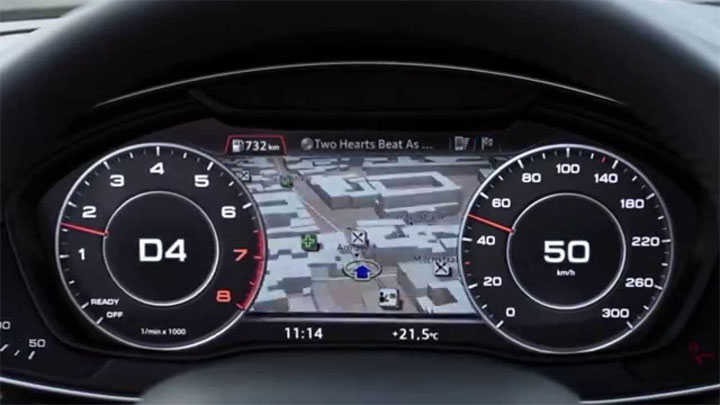
If the car starts shifting unnecessarily, it’s a reasonable indication that something is wrong with your PCM or TCM. But it could also indicate problems with the transmission valve body or simply being low on transmission fluid.
#3 – Misfires or Backfires
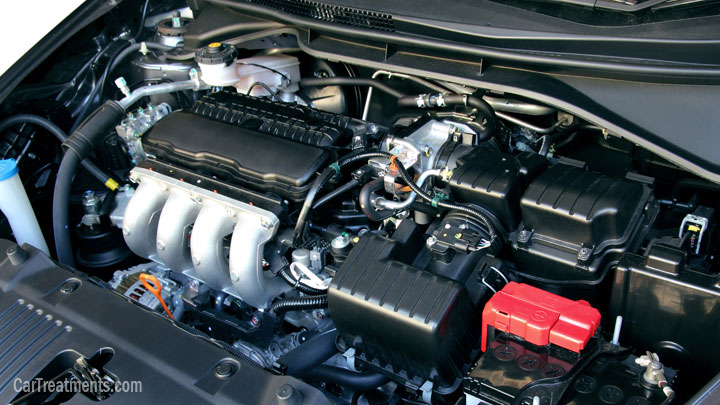
If the engine misfires a lot or backfires, it can mean a variety of issues so it’s best to take your car to the mechanic. They can then analyze the error codes and tell you the nature of the problem.
While causes of engine misfires are usually ignition related or a problem with fuel delivery, it’s possible a faulty PCM is to blame.
#4 – Problems Starting
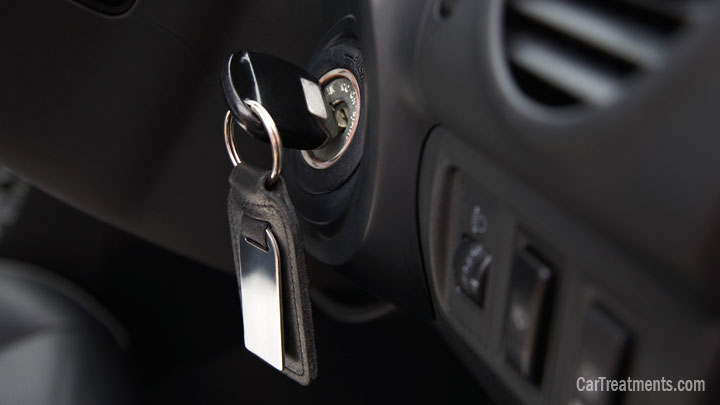
For the engine to run as it should, the PCM ensures that everything is in the correct position. It also coordinates the timing of the ignition. If the timing is off, the spark plugs won’t ignite at the right times.
It leads to problems running the car. If this is the issue, the vehicle may crank over, but it won’t start.
#5 – Increased Emissions
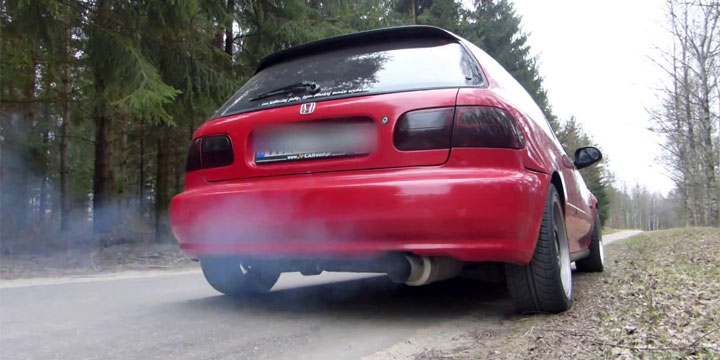
The downside of burning more fuel is that your emissions increase. If there is too much fuel, the catalytic converter won’t be able to filter out all the harmful fumes. You will experience higher emissions, and you might even fail an emission test, so you must have it sorted out.
Related: Best Catalytic Converter Cleaners to Help Pass an Emissions Test
#6 – Dashboard Warning Lights
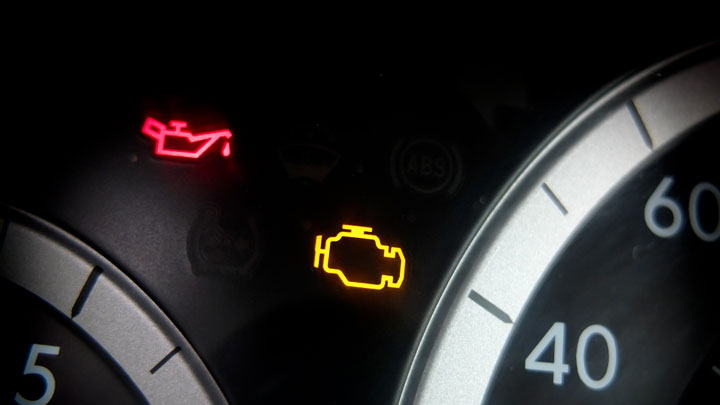
If more than one warning light comes on, it is a sure indication of trouble on the horizon. The car is not operating optimally, and there are bound to be problems between the different systems.
If your dashboard lights up like a Christmas tree, get to an auto mechanic that specializes in electrical work as soon as possible.
See Also: DTC P0606, DTC P2509, DTC U0100
PCM Replacement Cost
Best places to order parts? See: 19 Best Online Auto Parts Stores
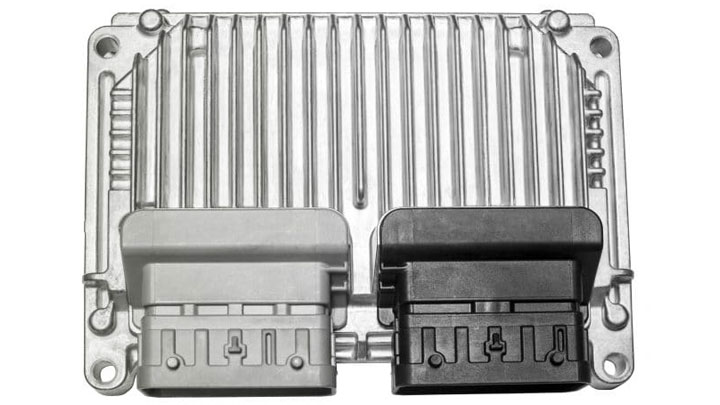
The PCM is such a critical system that you’d expect the parts to be costly. You’d be right. Because some powertrain control modules are much more complex than others, prices can vary a lot from one vehicle to another.
For instance, the owner of a new Audi A8 will be paying much more for a new PCM versus someone who owns a 15-year old Ford Focus.
The labor charges are also higher than they would be with your typical mechanic, so factor in an hourly rate of around $120. Fortunately, installing a new system is relatively simple so that labor won’t be too much of a factor.
You’re looking at $500 to $1,500 for a new module and another $120 at minimum for the labor. If you go to a dealer, expect to hand over a lot more cash, but, in this instance, it’s not essential to visit one. If you choose a reputable auto-electrician instead, you can save a lot on the replacement cost.
Sometimes you may be able to purchased a used powertrain control module for a couple hundred dollars whether online or from a junk yard but keep in mind that reprogramming it will be necessary. So you need to factor in the additional costs as well.
If the car still runs, you can drive it to the mechanic to save yourself the towing fees. Get it sorted out as quickly as possible, though, before some of the critical systems suffer damage.
PCM Reprogramming Cost
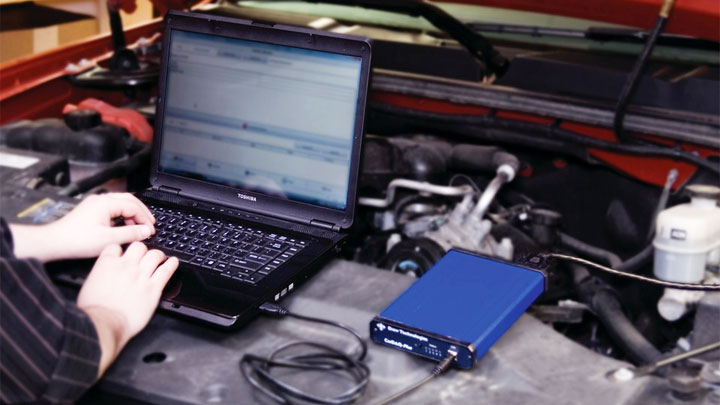
Do Windows updates drive you crazy? If so, we have some bad news for you. Your car’s computer may require an update to run efficiently.
The PCM uses software to control the systems in the vehicle. It knows that when you’re driving up a steep incline, you need more power, for example.
The programmers will think of every possible problem and program in a solution. Except that, much like with Window’s programmers, they can make mistakes, or they might miss a particular issue.
Downloading the updates is an essential part of keeping your car running optimally. Most often, a manufacturer will issue an update or recall and let the vehicle’s registered owner know a software update is necessary.
These types of updates are almost always free of charge. You will simply have to take your car to the dealership and set aside some time for them to make the updates.
But if you purchased a used PCM as a replacement (usually from a vehicle that was totaled in an accident), you will need to have it reprogrammed for it to be able to work with your vehicle.
How much it costs depends on where you’re going for the updates. There are no parts involved, so you’re looking at a standard labor charge. Prices could range from $80 to $150, depending on the service location you choose.
The process takes around about half an hour, but keep in mind that most auto-electricians charge you for at least one hour of work. PCM reprogramming is also one of the few times we’ll recommend a dealership over an independent mechanic.

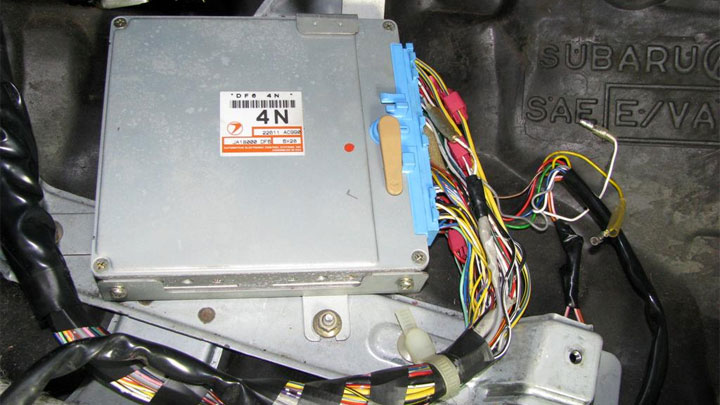

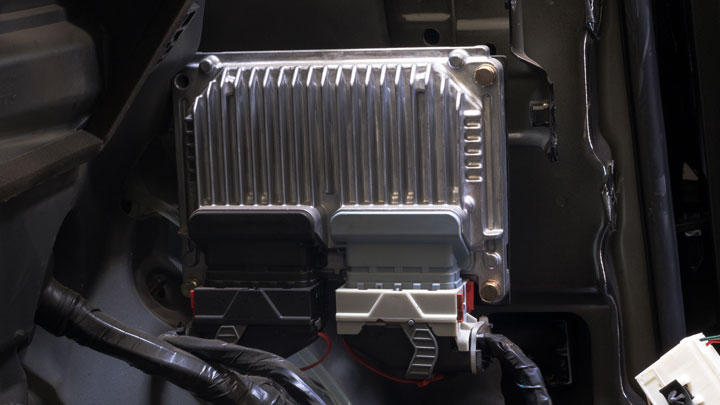
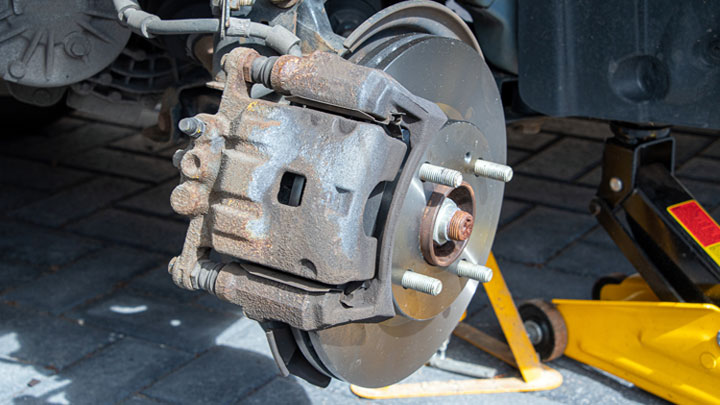
Do you do Jaguar
Hi Keith, we are not a shop but may be able to offer general advice and point you in the right direction.
I took my car to auto zone and no code came up but I had a check mark on the device internal and a check mark on the anti lock braking system but I had a x on the power train system so what you think the problem could be
I don’t know. What symptoms are you experiencing, and what is the year, make, and model of your vehicle?
I need a pcm for a 1993 ford mustang lx flashed. Can’t find anyone in East Texas that can do it . anybody know of anyone that can help in my area???
My car was working fine then the next day CEL flashes on start up. I get codes for high voltage and low voltage on the same components. Is it a PCM or an actual misfire and emissions issue?
I’m not sure, you’ll have to do some testing to figure out the cause of the check engine light. Were the codes just for misfires?
Assuming you mean this is for your O2 sensor(s), it is highly unlikely the PCM is bad, rather it has to be working to read the high and low voltages and far more likely you just need a new O2 sensor, or less common is a wiring short to it, then the question becomes did the O2 sensor just wear out, or does your engine have another problem causing excessive deposts on the sensor to foul it. They do wear out, but an engine burning oil or misfire so unburnt fuel is getting out of the cylinders and burning later to overheat them, is also more common than a PCM fault by far.
My engine recently seized on me and during diagnostic tests everything cleared as ok and it was determined it was the engine failing. After putting in the engine, they say the PCM is out and I have to cover expense on replacement…how does the PCM work before the engine fails and then fail after engine replacement?
What diagnostic tests were performed? It sounds like they misdiagnosed your vehicle, thought it was the engine, then realized it was the PCM after all. I’m not sure.
Too bad the PCM doesnt diagnose itself prior to expensive unnecessary repair bills. Or is it like “One of the quack doctors turned out to be a patient” and it wont tell you what it cant know?
It’s a little like that, yes. However I think many people misdiagnose an electrical issue as a fault with the PCM pretty regularly. It’s often a lot easier to replace a module than to hunt down a short or a bad ground.
My son’s car is hard shifting.
We live in Anaheim CA.
Where can we go to get the PCM replaced for cheap?
Replaced my transmission in 2011 Altima and car wont come out of limp mode .what am I missing?
Does the vehicle have any codes you can scan that tell you why it’s in limp mode?
You are missing telling us a lot more details about the situation.
For example, who replaced the transmission and why? If not you, the shop should be responsible for it working correctly when the repair is complete. If it was you, was it a new tranny, or rebuild and certified good, or in an unknown state from the junkyard, possible the reason the vehicle it came from was in the junkyard since Altima trannies are known to fail after X miles as yours did.
Have you hooked up a scan tool and pulled codes? That is usually the first place to start.
The best way to approach such kind of issues is to scan to see if there is any problem code. You can do this with an OBD II scan tool if you are comfortable with fixing your car yourself but if you are not then just check in with a professional.
used, tested good PCMs can be had for around $500, or used pulls from a junkyard (untested but probably good) for under $100, even under $50 in some cases. PCM programming is often not needed, if it was pulled from same make/model/year vehicle with same engine and tranny. Otherwise, about an hour of shop labor in the $100 to $150 range.
The thing is, a bad PCM is most often diagnosed when a tech can’t find the real problem, or is dishonest and found a cheaper solution and just wants to make a windfall in profit selling a new PCM and sneakily fixes the real problem w/o telling the owner, (aka fraud). PCM failure is not all that common except in extremely hot environments, or if something like an ignition coil or less often, a fuel injector fails to a shorted state. Far, FAR more often, it is just some inexpensive sensor that failed and the customer is duped into paying an extra $600+ when it was just a $20 sensor and 1/2 hour repair.
Tip: If you ever get told your PCM is bad, mark it in a permanent but hard to notice way, so when you ask for your parts back after the repair, you can make sure you’re getting back the PCM you started with, then plug your old PCM back in and see if it works and the mechanic/shop just tried to pull a fast one on you.
I will bet, that far more PCMs are replaced due to incompetence and/or fraud, that due to actual failure. As you might guess, I’ve been doing automotive electrical for a long time.
Thanks Dave, this will be helpful information for a lot of owners.
my transmission was rebuilt 2 dhicle ays later it went into limp mode. 2000 durango 5.9L R/T. I took it to a local transmission shot and ponted out some problems with the repair. drove ir home next day it wouldnt start. Had it towed in to the mechanic who rebuilt the tranny and and said the data link connector is not working and he cant do anything to my vehicle>
I have a 05 focus that was over charging badly so I was going to get a aultinator and the car just died and wouldn’t start or even crank over. We tried jumping it and nothing.. we got the new aultinator on and still nothing by turning the key but when the started got crossed over it cranked just wouldn’t start. We tried running the OBD on it but it wouldn’t even register it to come on.. my friend thinks it’s the ECM , the battery is good, all ground wires have been checked .. what do you think it could be?
Why do you think the vehicle was overcharging?
Is there a charge?
I am interested in a used car for sale that had the engine replaced and it runs ruff but owner said he was told the computer needed to be reprogramed. I need a dependable vehicle to take my husband to and from medical appts. for his Traumatic brain injury. I am almost 80 & no noting about the workings of vehicles except to gas it up.
I would be skeptical of that vehicle. It would be wise to get a pre-purchase inspection on any used vehicle you buy, whether from a dealer or a private party.
If the seller does not agree to a pre-purchase inspection, walk away and look for a different vehicle. You may have to pay for the cost of the inspection but it is well worth the $150 or so compared to a $6,000 engine, for instance.
I have 2010 FORD MUSTANG V6. two ecm’s have been replaced in it and they have not started the vehicle. Can the motor or transmission be replaced on it to fix the issue?
What are the symptoms of the problem? The root cause is probably not the ECM.
I have a 2000 Nissan Maxima and it is throwing codes… P0300, P0732, P0505, P1320.
if the computer is fried will the car still run? Also I smell rotten eggs while driving it, but it seems to run better at 60 or 70 mph.
I don’t know. Did all those codes show up at once? They seem like unrelated codes to me.